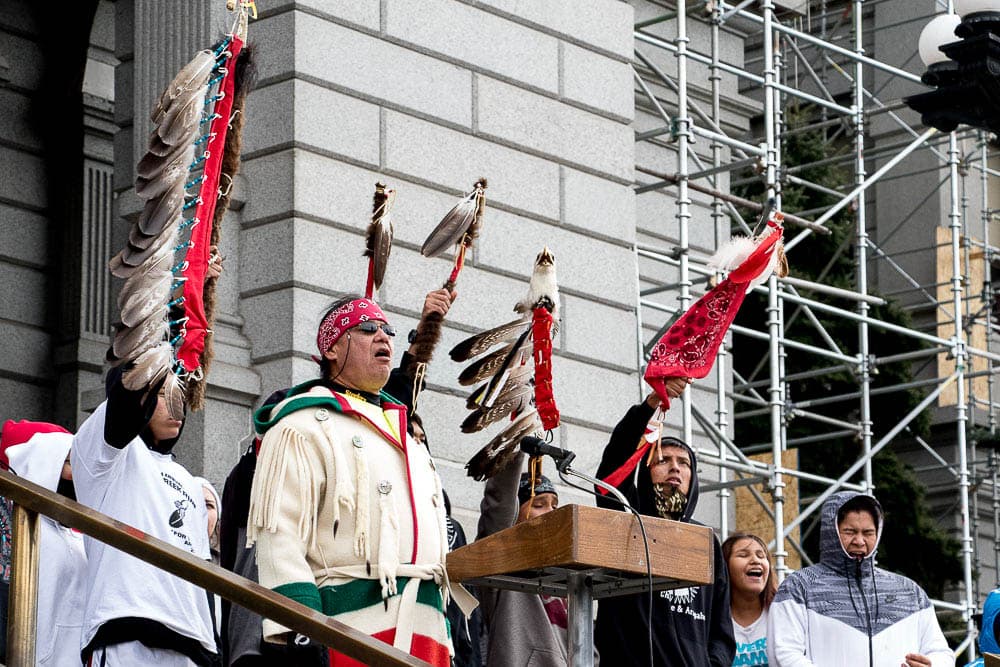Every year since 1999, Cheyenne and Arapaho people gather at the site of the Sand Creek Massacre to remember their ancestors who were killed by U.S. soldiers. They then run 173 miles from the site to Denver -- the same route the soldiers used after the massacre -- to foster healing.
The Spiritual Healing Run, as it's known, has an open invitation. But due to the ongoing COVID-19 pandemic, the run isn't open to the public this year.
Usually, participants run in relay teams to split up the mileage. But this year, only a few Indigenous people will undertake the long trek from the Sand Creek Massacre National Historic Site to Denver.
Kaden Walksnice, a descendant of a victim of the massacre and a Northern Cheyenne citizen, is driving from Montana to run the path with a handful of peers.
For Walksnice, the run comes during an especially mournful period for Indigenous people.
"I'm looking at it as more of the healing part from COVID and losing people, especially ceremonial mentors for me," Walksnice said. "That's what wants me to get down there more and to continue to run and share the running."
Walksnice has participated in the run since he was a teenager. He wasn't able to run it last year due to the pandemic, but he wanted to participate this year regardless of a public event to remember those in his community that he's lost.
"This year I'm going down there with all the grief I've been going through. I want to go down and run, not only for myself, but for the others that are grieving," he said.
He invited anyone who feels compelled to participate to run any part of the route.
Nearly 157 years to the day, 675 U.S. soldiers attacked a village of Cheyenne and Arapaho people in southeastern Colorado, massacring 230. They were mostly women, children and elders.
Earlier this year, Gov. Jared Polis revoked two orders that incited the Sand Creek Massacre by former territorial governor John Evans.












